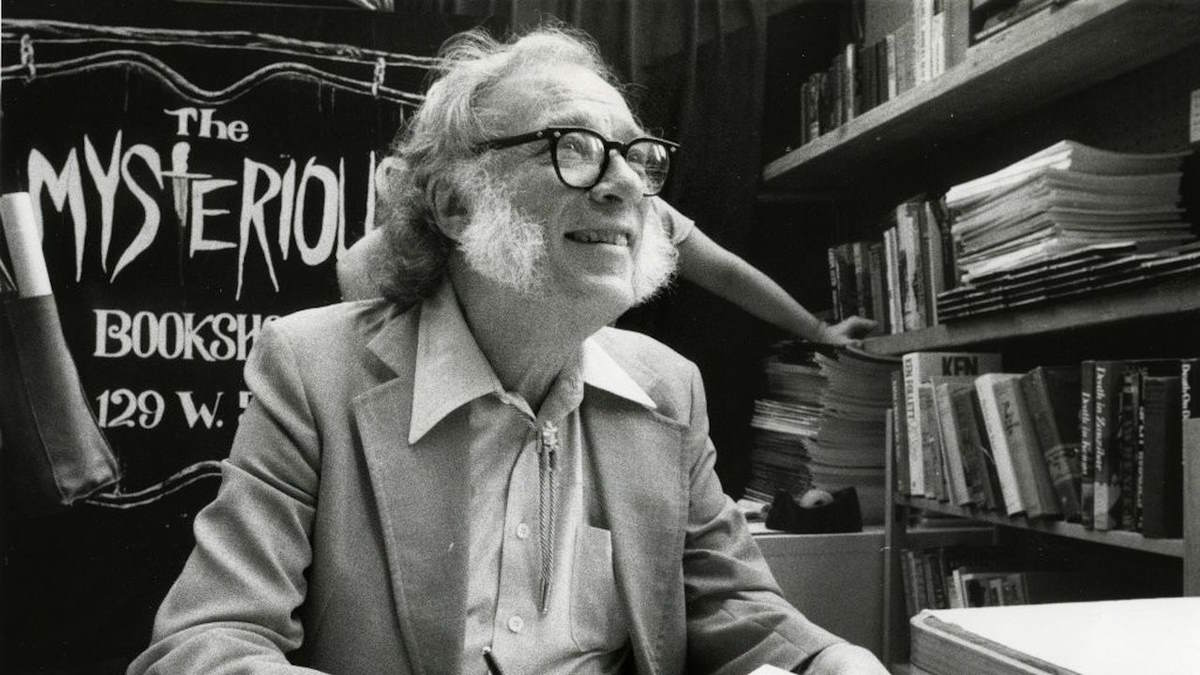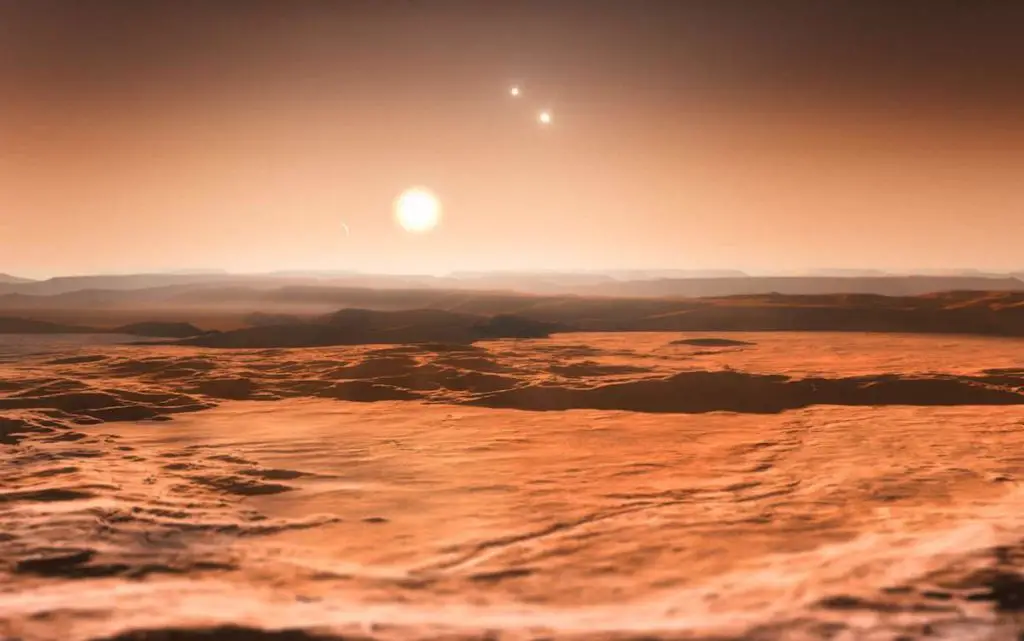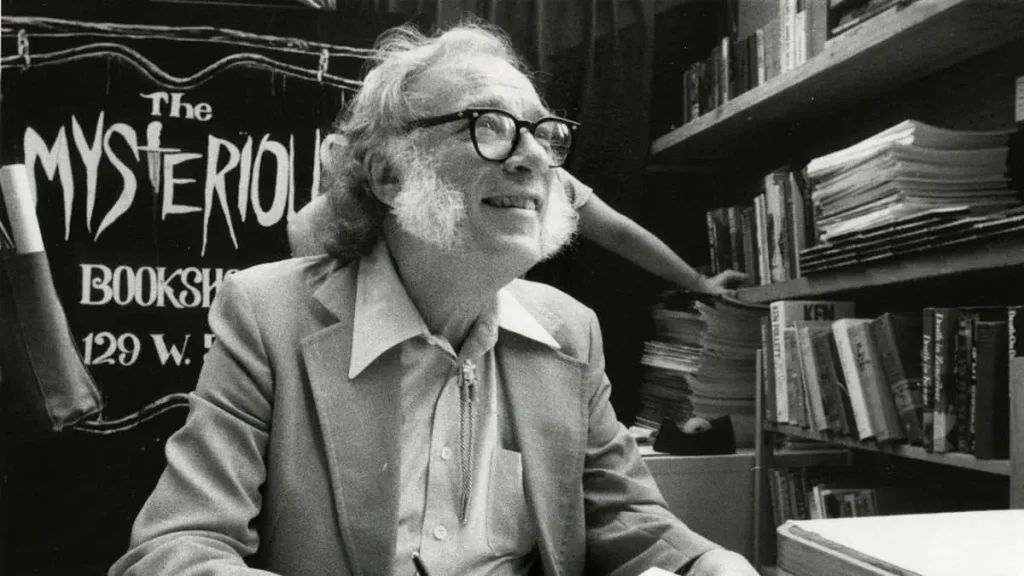Here are the top 10 Isaac Asimov quotes on science. Asimov was a prolific writer who wrote or edited more than 500 books (mostly science fiction and popular science).
Isaac Asimov Quotes on Science
On scientific method
There is not a discovery in science, however revolutionary, however sparkling with insight, that does not arise out of what went before. ‘If I have seen further than other men,’ said Isaac Newton, ‘it is because I have stood on the shoulders of giants.”
From “Adding a Dimension: Seventeen Essays on the History of Science”. Published May 1st 1966 by Dobson Books Ltd (first published in 1964).
The most exciting phrase to hear in science, the one that heralds the most discoveries, is not “Eureka!” (I found it!) but ‘That’s funny…’
It’s Been a Good Life (2002)
Creationists make it sound as though a ‘theory’ is something you dreamt up after being drunk all night.
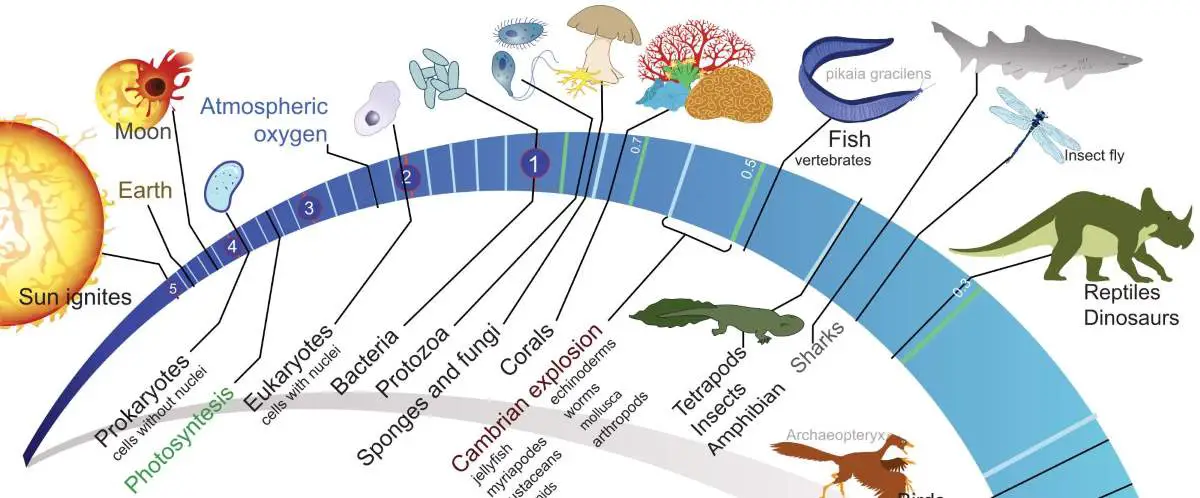
Related: Is Evolution “just a theory”?
How often people speak of art and science as though they were two entirely different things, with no interconnection. An artist is emotional, they think, and uses only his intuition; he sees all at once and has no need of reason. A scientist is cold, they think, and uses only his reason; he argues carefully step by step, and needs no imagination. That is all wrong. The true artist is quite rational as well as imaginative and knows what he is doing; if he does not, his art suffers. The true scientist is quite imaginative as well as rational, and sometimes leaps to solutions where reason can follow only slowly; if he does not, his science suffers.
From “The Roving Mind” (1983), Prometheus Books, new edition 1997. It is a collection of essays on creationism, pseudoscience, censorship, population, philosophy of science, transportation, computers, and corporations of the future, and astronomy.
On ignorance
Though knowledge can create problems, it is not through ignorance that we can solve them.
There is a cult of ignorance in the United States, and there has always been. The strain of anti-intellectualism has been a constant thread winding its way through our political and cultural life, nurtured by the false notion that democracy means that ‘my ignorance is just as good as your knowledge‘.
Uncertainty that comes from knowledge (knowing what you don’t know) is different from uncertainty coming from ignorance.
Increasingly, our leaders must deal with dangers that threaten the entire world, where an understanding of those dangers and the possible solutions depends on a good grasp of science. The ozone layer, the greenhouse effect, acid rain, questions of diet, and heredity. All require scientific literacy. Can Americans choose the proper leaders and support the proper programs if they themselves are scientifically illiterate? The whole premise of democracy is that it is safe to leave important questions to the court of public opinion-but is it safe to leave them to the court of public ignorance?
From “I, Asimov”. Published January 1st 1995 by Bantam (first published on March 1st 1994).
On evidence
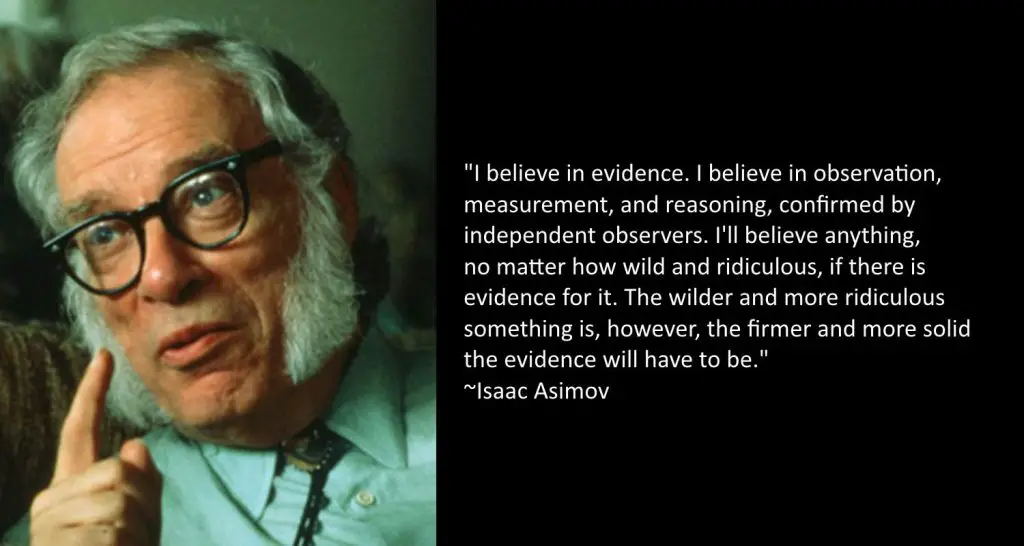
I believe in evidence. I believe in observation, measurement, and reasoning, confirmed by independent observers. I’ll believe anything, no matter how wild and ridiculous, if there is evidence for it. The wilder and more ridiculous something is, however, the firmer and more solid the evidence will have to be.
From “The Roving Mind” (1983), Prometheus Books, new edition 1997. It is a collection of essays on creationism, pseudoscience, censorship, population, philosophy of science, transportation, computers, and corporations of the future, and astronomy.
On science education
Science can be introduced to children well or poorly. If poorly, children can be turned away from science; they can develop a lifelong antipathy; they will be in a far worse condition than if they had never been introduced to science at all.
Isaac Asimov
Isaac Asimov (c. January 2, 1920, in Russia – April 6, 1992, in Manhattan, New York) published around 500 books. He wrote hard science-fiction which was characterized by a concern for scientific accuracy and logic. Along with Robert A. Heinlein (July 7, 1907 – May 8, 1988) and Arthur C. Clarke (16 December 1917 – 19 March 2008), he was considered one of the “Big Three” science-fiction writers during his lifetime.
He wrote many popular science books – in fact, he was one of the creators of the genre. He also wrote on numerous other non-scientific topics including history, biblical exegesis, and literary criticism.
Sources
- Isaac Asimov on Wikipedia
- Isaac Asimov quotes on Good Reads
- “25 Great Isaac Asimov Quotes on the Science of Life” on goalcast.com
- “Isaac Asimov quotes on science” on todayinsci.com
- Budget of NASA, Year by Year [1980-1989] - June 10, 2024
- Budget of NASA, Year by Year [1970-1979] - June 10, 2024
- Budget of NASA, Year by Year [1958-2024] - June 10, 2024
